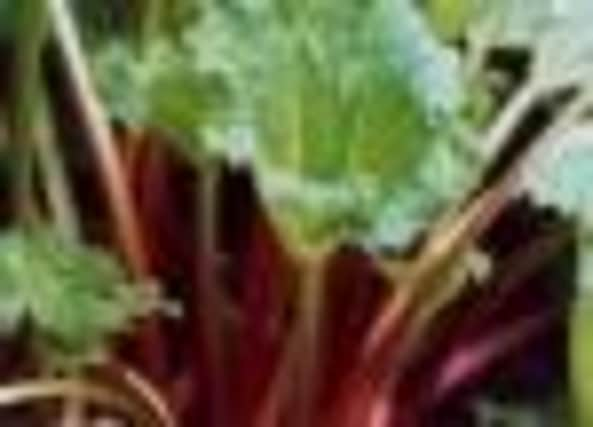The forced is with us


That tin has stood, forgotten and unwanted, for so long that it deserves something better – perhaps as the prime contents of a rhubarb crumble. But even I, as a never-waste-anything Yorkshireman, am not prepared to gamble on what little good health I still have.
But that doesn’t stop me from loving rhubarb, one of the great gifts from this great county of ours. Where rhubarb is concerned, Yorkshire is king, and the triangle of land between Wakefield, Morley and Rothwell is justifiably famous for producing early forced rhubarb.
Advertisement
Hide AdAdvertisement
Hide AdA century or so ago, there were more than 200 growers producing nine-tenths of the world’s early rhubarb in forcing sheds, a few of which can still be seen in fields alongside the M1.
The plants spend two years out in the open, absorbing sunshine and storing energy. Then they go into the sheds where the dark and warmth “forces” them to grow longer, sweeter stalks, rather than producing leaves to absorb sunlight.
And January is, traditionally, the month to get forcing in earnest; not on the commercial scale, but in your own garden.
Forcing – covering developing shoots with a large bucket, a black polythene sack or an expensive but very attractive, purpose-made terracotta jar – will encourage them to grow quickly. So fast, in fact, that you could be enjoying the fruits of your labours as early as next month and continue to tuck in to pies and crumbles until the start of May. After that, the shoots tend to get a bit stringy and tough, so compost them.
Advertisement
Hide AdAdvertisement
Hide AdGiven an annual dressing of manure, a crown (mature root) of rhubarb should last up to a decade before it needs replacing, although some amateur growers are still harvesting from crowns planted way back in the mists of time when just about every small garden had at least one patch of rhubarb.
Wakefield Council holds an annual Rhubarb Festival in February, celebrating the area’s links and promoting the surviving rhubarb industry.